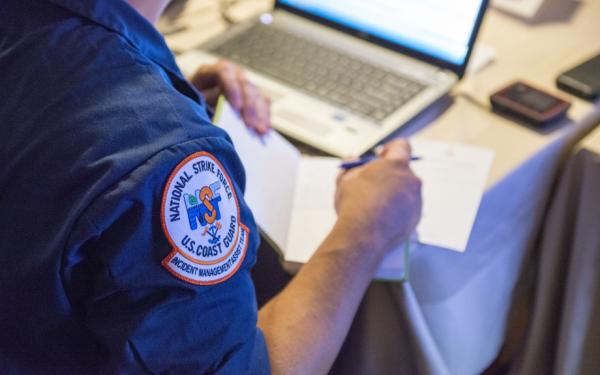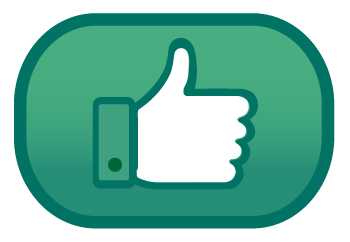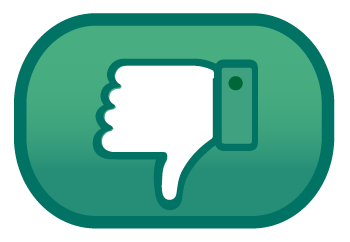Need help?
Visit online.safehelpline.org or download the Safe Helpline
app to chat one-on-one with a trained Safe Helpline staff member
through an anonymous, secure instant-messaging format 24/7.
How can the Online Helpline help me?
You can chat one-on-one with a Safe Helpline staff member
to access a range of support services including:
- Anonymous, confidential, crisis intervention services
- Emotional support
- Referrals to both military and civilian resources in your area— sexual assault response coordinators (SARCs)/sexual assault prevention and response victim advocates (SAPR VAs), Chaplain, Legal, Medical/Behavioral health care services, military police, Veterans Crisis Line, local civilian sexual assault service providers, and many others.
- Information on military-specific policies, such as reporting options (Restricted and Unrestricted)
- Information for family and friends of survivors
- Information for leadership
What can I expect from a session?
The Online Helpline works like other instant messaging and online chat systems, but with enhanced security measures. You'll enter a private one-on-one chat with a trained Safe Helpline staff member and chat live by typing messages back and forth. The service is completely anonymous and confidential—we will never ask you for any information that would identify who you are. You can feel free to share as much or as little as you like with us. We will not share any information you provide during a call with the Department of Defense (DoD) or your chain of command. This includes anything you share about your Service, rank, race, gender, or sexual orientation. Additionally, Safe Helpline will never deny services to a member of the DoD community, including lesbian, gay, bisexual, transgender, or queer (LGBTQ+) community.
If you would like to receive a follow-up call to ensure that you were able to connect with the resources provided, our staff can discuss that option with you. Follow-up Support is an optional resource that provides survivors who have not yet reported their sexual assault to a military authority to receive a follow-up call from Safe Helpline. The check-in allows you to connect back with Safe Helpline staff, review resources provided during the original contact and ask any additional questions. Follow-up Support is entirely optional and staff will never ask for PII if you do not want to receive a follow-up call. To learn more, review the info-paper here, or you can ask Safe Helpline staff for more information.
Who will I be chatting with?
It can be difficult to talk about what happened. You can take comfort in knowing that Safe Helpline staff members are trained to meet the unique needs of survivors within the DoD community. Staff come from diverse backgrounds with different experiences but they all share a passion for helping others. Safe Helpline provides inclusive, culturally-relevant services using a survivor-centered and survivor-led approach. This means that the survivor is in control of the direction of the conversation and learning about any additional resources they would like to pursue. Not every survivor comes to the Safe Helpline looking to connect with additional resources, and that’s okay.
To ensure quality support and care, Safe Helpline carefully vets, trains, and monitors the performance of all staff members. In addition, each chat is overseen by a highly trained Safe Helpline Supervisor to ensure all users have a positive helpline experience. When you are done chatting with the staff member, you have the opportunity to leave anonymous feedback for Safe Helpline about your experience with the Online Helpline. We take these ratings and comments seriously. User feedback helps us continuously improve the Online Helpline and ensure our services best fit our users’ needs.
How have we made Safe Helpline online sessions safe?
We have partnered with the nation’s top technology and online security companies to build a helpline infrastructure that is as safe and secure as current technology allows.
There are four key steps we’ve taken to give you the highest level of security:
- You are anonymous. The Online Helpline was built using special anonymous routing methods that obscure the connection between you and Safe Helpline staff via the use of a unique code that cannot be traced back to you. Safe Helpline staff will not ask you for personally identifying information about yourself.
- We never log your IP address. An IP address is like your computer’s mailing address. Once you begin a session, Safe Helpline never captures this address, so a session can never be traced back to you.
- We don’t save session transcripts. Unlike other online chat platforms, which save data that can be accessed later, Safe Helpline does not record the transcript of your online session. Without this record, there is no way for anyone else to read the conversation you have with Safe Helpline staff.
- We encrypt all data. Every time you, or a Safe Helpline staff member, hit send, your words are encrypted using 128-bit SSL technology, the best available. That way, the text cannot be intercepted and read in transit.
In addition, communication between a victim and Safe Helpline staff are protected from disclosure in cases arising under the Uniform Code of Military Justice in accordance with Military Rules of Evidence (MRE) 514 – Victim-Victim Advocate Privilege.
How can I make my Safe Helpline online sessions safer?
There are certain steps you should consider to ensure confidentiality and safety. These steps are particularly important if the person abusing you has access to your computer.
-
If you suspect your computer is being monitored or is not safe, consider using a different device. Ask a trusted friend to borrow their computer or mobile device, or consider using a computer lab at a local public library.
- When the chat is over, clean your cache and history and then erase the cookies on your computer or mobile device, as long as you think doing so will not raise red flags or put you at risk. If you think that someone may be using tracking software on your computer, it is important to find a safer computer or use a telephone instead.
- If you are using a DoD computer, please be aware that the department may monitor your computer activity. We cannot control the privacy policies of the DoD.
For more information about staying safe online, follow these tips.
If at any time you feel unsafe using the Online Helpline you can call the Telephone Helpline at
877-995-5247 to be connected with trained Safe Helpline staff members who can help.
Is my safety guaranteed?
We have done everything possible to ensure your safety and anonymity, but we cannot guarantee the security of your computer. While we cannot eliminate every risk, we’ve taken every step to greatly minimize the risks of online sessions.


